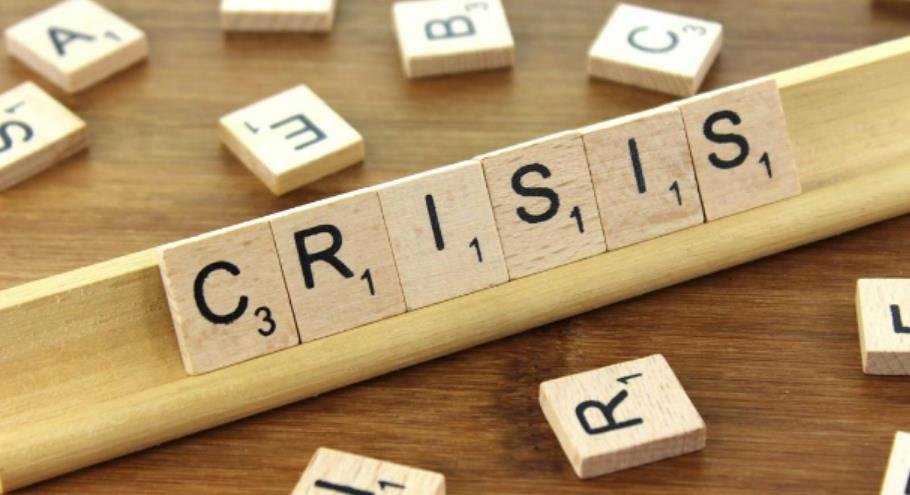The year 2024 has begun with a series of challenges for the global economy, ranging from inflation and climate change to war and pandemic. How are countries and businesses adapting to this turbulent environment? And what are the prospects for recovery and stability?
One of the most pressing issues facing the global economy is inflation, which has reached its highest level in four decades in many countries. Inflation is the general increase in the prices of goods and services over time, which erodes the purchasing power of money and reduces the real value of incomes and savings.
Inflation can have various causes, such as excess demand, supply shocks, currency depreciation, or expansionary monetary and fiscal policies. In 2024, inflation has been driven by a combination of factors, including the recovery from the COVID-19 pandemic, the war in Europe, the energy crisis, and the supply chain disruptions.

Some economists argue that inflation is a temporary phenomenon that will subside once the economy adjusts to the post-pandemic and post-war conditions. They point out that inflation can have some positive effects, such as stimulating consumption, investment, and innovation, as well as reducing the real burden of debt.
Others, however, warn that inflation can become a serious problem if it persists and accelerates, leading to a loss of confidence, a decline in growth, and a rise in inequality. They urge central banks to tighten their monetary policies and raise interest rates to curb inflation and maintain price stability.
Climate change: a challenge and a responsibility
Another major challenge for the global economy is climate change, which poses significant risks to the environment, human health, and social welfare. Climate change is the long-term alteration of the Earth’s climate system, mainly due to the emission of greenhouse gases from human activities, such as burning fossil fuels, deforestation, and agriculture.
Climate change can have various impacts, such as rising temperatures, melting ice caps, sea level rise, extreme weather events, droughts, floods, wildfires, biodiversity loss, and disease outbreaks. These impacts can have negative effects on the economy, such as reducing agricultural productivity, damaging infrastructure, disrupting trade, increasing migration, and exacerbating conflicts.
To address climate change, countries and businesses have to take urgent and ambitious actions to reduce their greenhouse gas emissions and adapt to the changing conditions. This requires a transition to a low-carbon and resilient economy, based on renewable energy, energy efficiency, circular economy, and green innovation.
Climate change also offers an opportunity for cooperation and solidarity among countries and businesses, as well as a responsibility to support the most vulnerable and affected communities. This requires a fair and effective global governance system, based on the principles of the Paris Agreement, the Sustainable Development Goals, and the Common but Differentiated Responsibilities and Respective Capabilities.
War: a tragedy and a threat
The most shocking and tragic event of 2024 has been the outbreak of war in Europe, following the invasion of Ukraine by Russia in late 2023. The war has escalated into a regional and global conflict, involving NATO, the European Union, China, and other actors.
The war has caused immense human suffering, as well as political and economic instability. The war has claimed thousands of lives, displaced millions of people, violated human rights, and threatened international peace and security. The war has also disrupted the supply and demand of energy, food, and other essential goods and services, as well as the flow of trade, investment, and tourism.
The war has also posed a challenge to the international order and the multilateral system, as well as to the values and principles of democracy, human rights, and the rule of law. The war has tested the credibility and effectiveness of the United Nations, the Security Council, and other regional and global institutions and mechanisms.
To end the war and prevent further escalation, countries and businesses have to engage in dialogue and diplomacy, as well as in humanitarian and development assistance. This requires a comprehensive and inclusive political solution, based on the respect for the sovereignty, territorial integrity, and independence of Ukraine, as well as the implementation of the Minsk agreements and the Normandy format.
Pandemic: a crisis and a lesson
The last and longest challenge for the global economy has been the COVID-19 pandemic, which started in late 2019 and has continued to affect the world in 2024. The pandemic is a disease outbreak caused by a novel coronavirus, which can cause respiratory infections, pneumonia, and death.
The pandemic has had devastating consequences for the economy, as well as for the society and the health system. The pandemic has caused a global recession, as well as a loss of income, employment, and education. The pandemic has also increased poverty, hunger, and inequality, as well as mental and physical stress. The pandemic has also overwhelmed the health system, as well as exposed the gaps and weaknesses in the public health and social protection systems.
The pandemic has also taught some valuable lessons for the economy, as well as for the society and the health system. The pandemic has shown the importance of science, innovation, and collaboration, as well as the need for universal access to vaccines, treatments, and tests. The pandemic has also highlighted the interdependence and interconnectedness of the world, as well as the need for global solidarity and cooperation. The pandemic has also demonstrated the resilience and adaptability of the people, as well as the potential for transformation and recovery.
